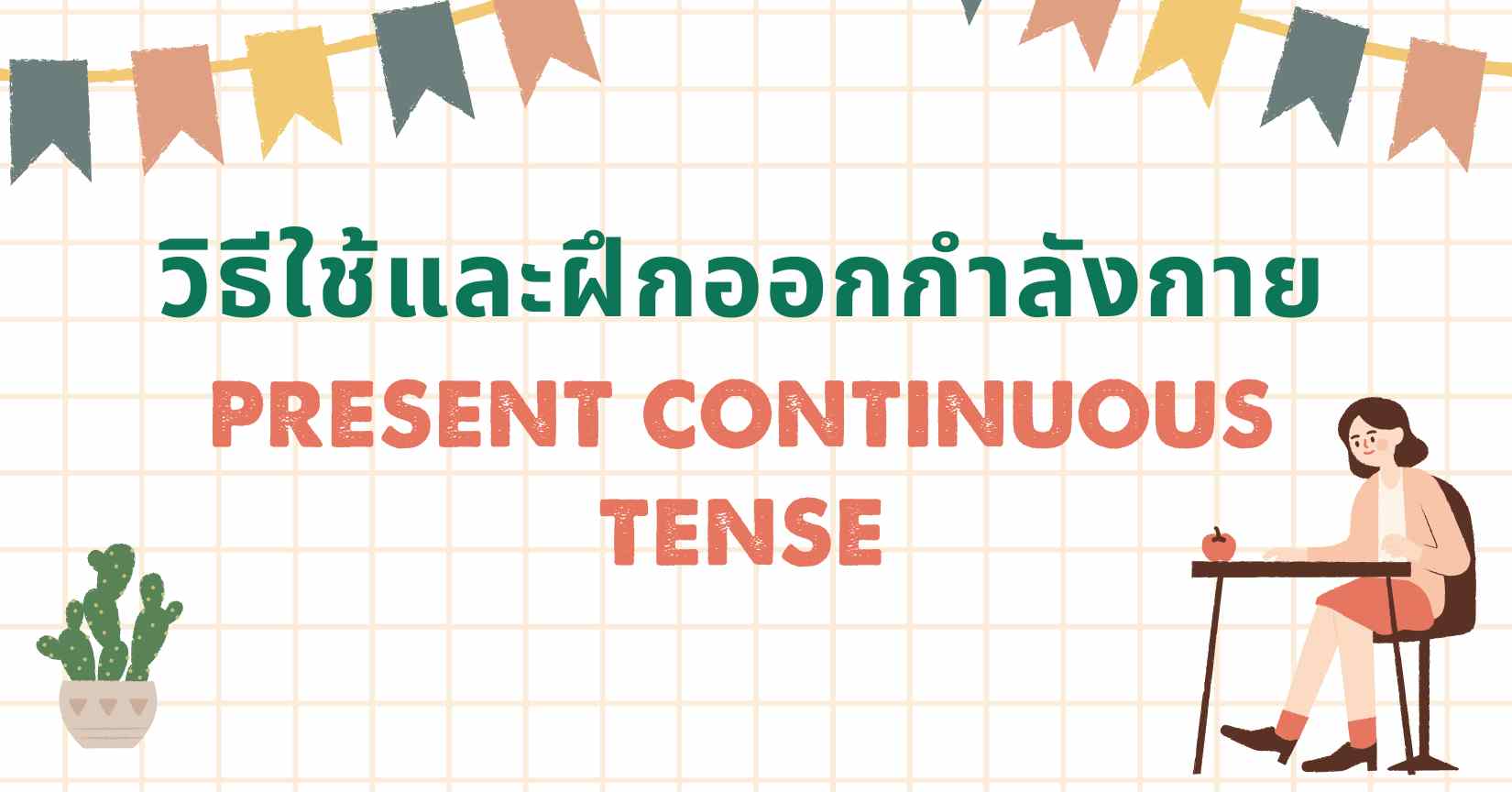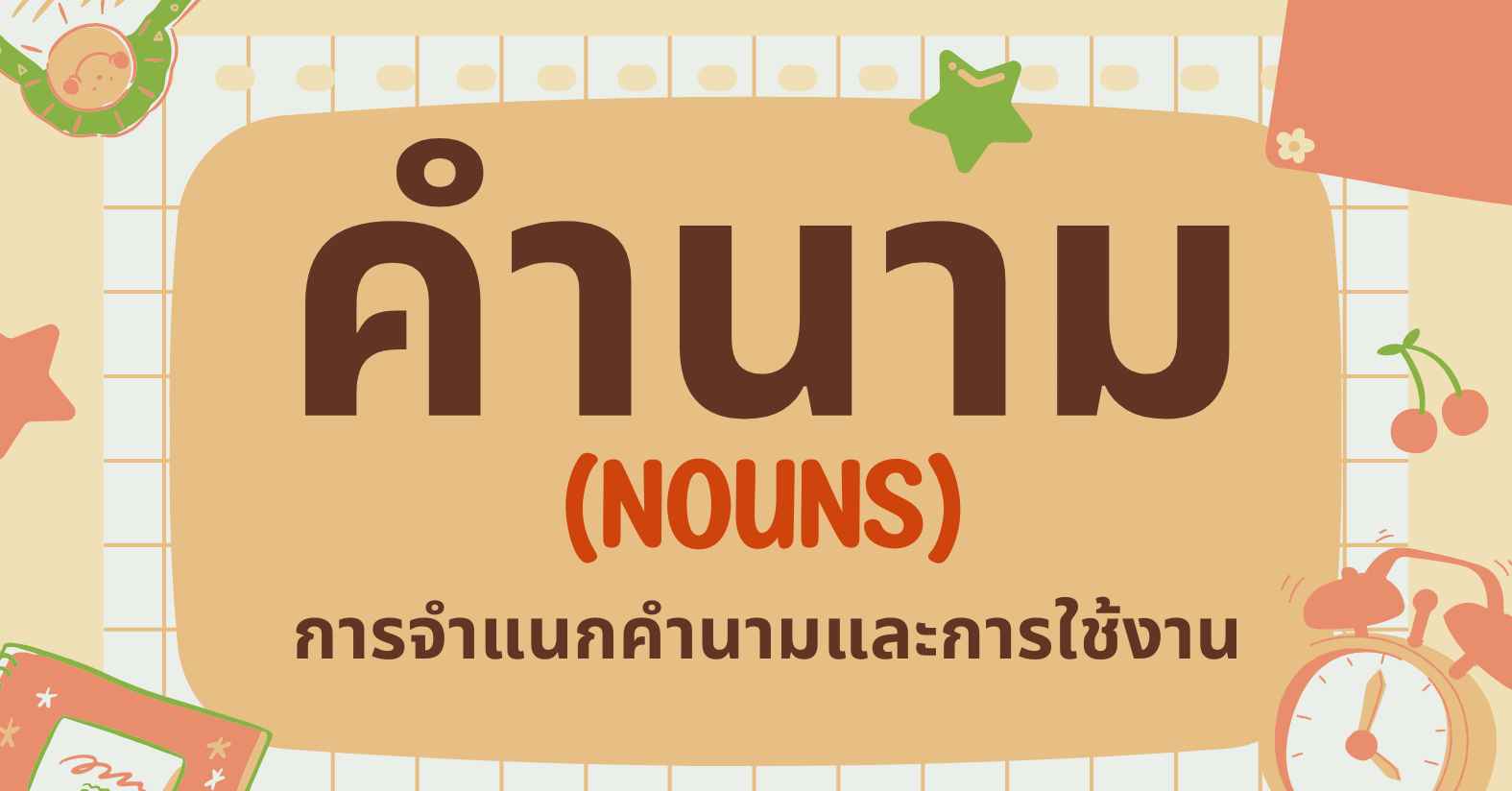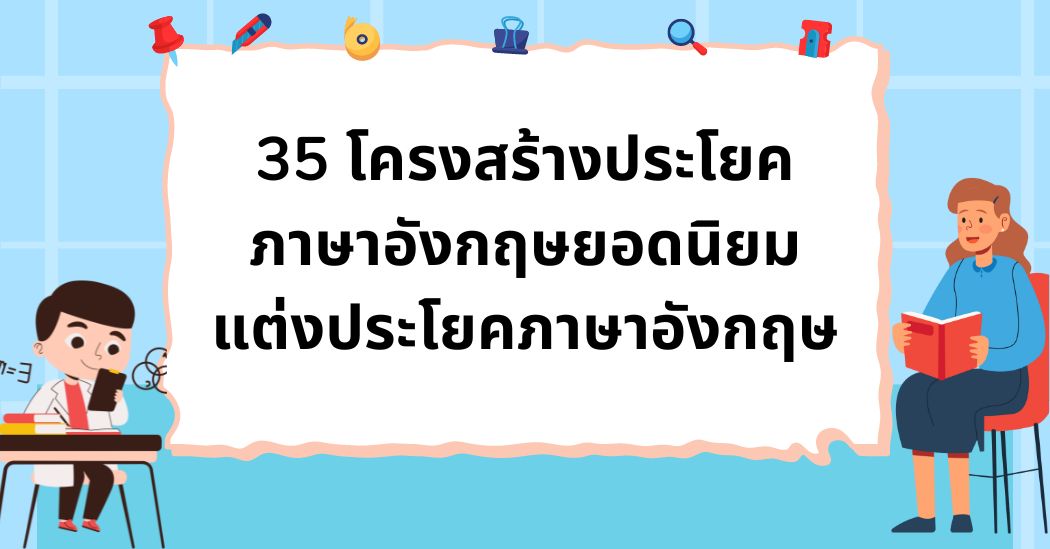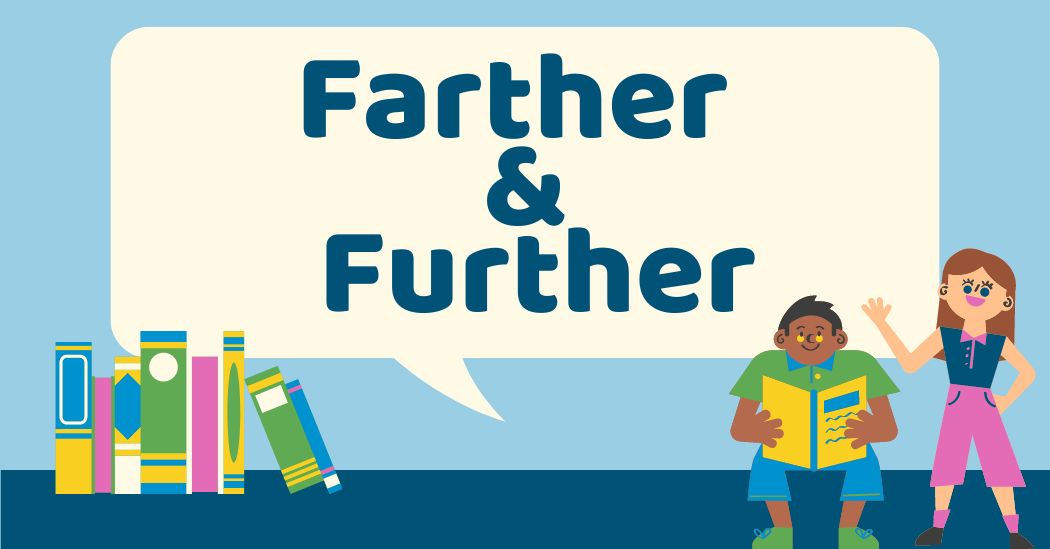ไวยากรณ์ภาษาอังกฤษพื้นฐาน คือระบบกฎเกณฑ์ที่ช่วยให้คุณใช้ภาษาอังกฤษได้อย่างถูกต้องและมีประสิทธิภาพ การเข้าใจไวยากรณ์ภาษาอังกฤษพื้นฐานก็ช่วยพัฒนาทักษะการฟัง พูด อ่าน เขียน ของคุณให้ดีขึ้นอีกด้วย ในบทความนี้ MochiMochi ได้รวบรวมส่วนต่างๆ ของไวยากรณ์พื้นฐานในภาษาอังกฤษพร้อมแบบฝึกหัดให้คุณได้ฝึกฝน มาดูกันและลองฝึกทำกันเถอะ!
เรียนรู้คำศัพท์ภาษาอังกฤษอย่างมีประสิทธิภาพกับ MochiVocab
MochiVocab เป็นแอปพลิเคชั่นเรียนคำศัพท์ภาษาอังกฤษที่ใช้วิธี Spaced Repetition ในการวิเคราะห์ประวัติการเรียนรู้ของผู้ใช้เพื่อคำนวณ “ช่วงเวลาทอง” ซึ่งจะแจ้งเตือนให้ผู้ใช้ทบทวนเมื่อสมองกำลังจะลืมความรู้ โดยใช้เวลาเรียนเพียง 10-15 นาทีต่อวัน MochiVocab ช่วยให้ผู้เรียนจดจำคำศัพท์ได้มากถึง 1,000 คำในหนึ่งเดือน ปัจจุบัน
คุณสมบัติที่โดดเด่นที่สุดคือ “ช่วงเวลาทอง” ซึ่งจะคำนวณเวลาที่ผู้ใช้จะลืมคำศัพท์ตามประวัติการเรียนรู้ของผู้ใช้ เมื่อเวลานั้นมาถึง แอปจะแจ้งเตือนทางโทรศัพท์เพื่อให้ผู้ใช้ทบทวนเพื่อเพิ่มประสิทธิภาพในการจำ
จากผลการเรียนของคุณ MochiVocab จะจัดเรียงคำศัพท์ที่คุณได้เรียนรู้ตามระดับความจำ 5 ระดับ คำศัพท์ในระดับที่สูงขึ้นจะมีช่วงเวลาทบทวนที่ยาวนานขึ้น ในทางกลับกัน คำศัพท์ในระดับต่ำจะถูกแจ้งเตือนให้ทบทวนบ่อยขึ้นจนกว่าคุณจะจำได้อย่างแม่นยำ วิธีนี้จะช่วยลดเวลาที่ใช้ในการทบทวนคำศัพท์ที่คุณจำได้แล้ว เพื่อเน้นคำที่ยากและคุณมักจะลืม

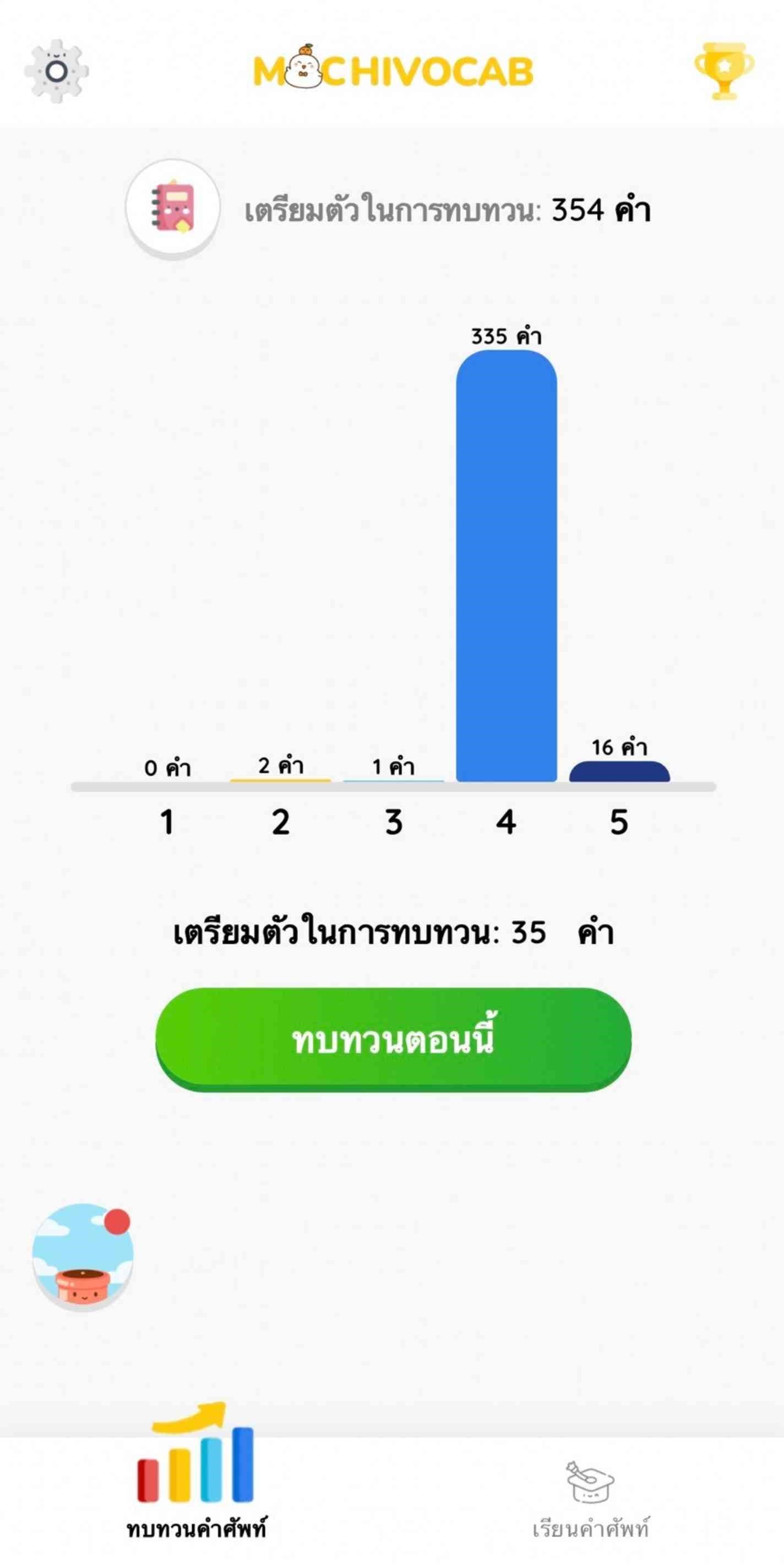

ด้วย MochiVocab การเรียนรู้คำศัพท์จะไม่ใช่ปัญหาในการเรียนภาษาอังกฤษอีกต่อไป มาเริ่มต้นใช้เพื่อปรับปรุงระดับของคุณกันเถอะ
Present Simple Tense (ประโยคปัจจุบันกาล)
สูตร
สำหรับคำกริยาทั่วไป:
ประโยคบอกเล่า:
S + V (s,es)
ประโยคปฏิเสธ:
S + don’t/ doesn’t + V
ประโยคคำถาม:
Do/ Does + S + V?
ตัวอย่าง:
I play tennis every weekend. (ฉันเล่นเทนนิสทุกสุดสัปดาห์)
He does not (doesn’t) go to the gym. (เขาไม่ไปยิม)
Do you like ice cream? (คุณชอบไอศกรีมไหม?)
สำหรับคำกริยา “to be”:
ประโยคบอกเล่า
I + am He/She/It + is You/We/They + are
ประโยคปฏิเสธ
I + am not He/ She/ It + is not (isn’t) You/ We/ They + are not (aren’t)
ประโยคคำถาม
Am + I? Is + He/ She/ It? Are + You/ We/ They?
ตัวอย่าง:
I am a doctor. (ฉันเป็นหมอ)
He isn’t a student. (เขาไม่ใช่นักเรียน)
Are they friends? (พวกเขาเป็นเพื่อนกันไหม?)
การใช้งาน
- เพื่อบรรยายความจริงทั่วไปหรือสัจธรรม
ตัวอย่าง: The sun rises in the east. (ดวงอาทิตย์ขึ้นทางทิศตะวันออก)
- เพื่อบรรยายนิสัยหรือการกระทำที่เกิดซ้ำๆ
ตัวอย่าง: She goes to the gym every day. (เธอไปยิมทุกวัน)
- เพื่อบรรยายตารางเวลาหรือเวลาที่กำหนดไว้ (มักใช้กับเหตุการณ์ที่กำหนดไว้ล่วงหน้า เช่น ตารางรถไฟหรือตารางบิน)
ตัวอย่าง: The train leaves at 6 p.m. (รถไฟออกเวลา 6 โมงเย็น)
- เพื่อบรรยายสถานะหรือสถานการณ์ในปัจจุบัน
ตัวอย่าง: I live in New York. (ฉันอาศัยอยู่ในนิวยอร์ก)
แบบฝึกหัด
เติมคำกริยารูปแบบที่ถูกต้องในวงเล็บลงในช่องว่าง
a. He _____ (go) to school by bus.
b. We _____ (not/play) video games.
c. _____ (you/enjoy) reading books?
d. She _____ (not/like) coffee.
e. They _____ (live) in New York.
คำตอบ:
a. He goes to school by bus.
b. We do not (don’t) play video games.
c. Do you enjoy reading books?
d. She does not (doesn’t) like coffee.
e. They live in New York.
ปัจจุบันกาลต่อเนื่อง (Present Continuous)
สูตร
ประโยคบอกเล่า:
S + am/is/are + V-ing
ประโยคปฏิเสธ:
S + am not/isn’t/aren’t + V-ing
ประโยคคำถาม:
Am/Is/Are + S + V-ing?
ตัวอย่าง:
He is playing football now. (เขากำลังเล่นฟุตบอล)
They aren’t doing their homework. (พวกเขาไม่ทำการบ้าน)
Are you cleaning the kitchen? (คุณกำลังทำความสะอาดห้องครัวหรือเปล่า?)
การใช้งาน
- เหตุการณ์ที่กำลังเกิดขึ้นในขณะที่พูด
ตัวอย่าง: I’m watching TV now. (ฉันกำลังดูทีวี)
- ใช้กับ always เพื่อพูดถึงสิ่งที่ทำให้รำคาญหรือไม่พอใจ
ตัวอย่าง: She is always borrowing my money. (เธอมักจะยืมเงินฉันเสมอ)
- เหตุการณ์ที่แน่นอนว่าจะเกิดขึ้นในอนาคต
ตัวอย่าง: He’s flying to London next week. (เขาจะบินไปลอนดอนสัปดาห์หน้า)
- เหตุการณ์ที่เกิดขึ้นในช่วงเวลาสั้นๆ หรือชั่วคราว
ตัวอย่าง: This week Paul is traveling to work by bus because his car breaks down. (สัปดาห์นี้พอลต้องไปทำงานโดยรถบัสเพราะรถของเขาเสีย)
แบบฝึกหัด
เติมคำกริยารูปแบบที่ถูกต้องในวงเล็บลงในช่องว่าง:
a. He _____ (write) a letter.
b. We _____ (not/play) video games.
c. _____ (you/watch) TV?
d. She _____ (not/eat) lunch.
e. They _____ (have) a meeting.
คำตอบ:
a. He is writing a letter.
b. We are not (aren’t) playing video games.
c. Are you watching TV?
d. She is not (isn’t) eating lunch.
e. They are having a meeting.
Past Simple Tense (อดีตกาลธรรมดา)
สูตร
สำหรับคำกริยาทั่วไป:
ประโยคบอกเล่า:
S + V (เติม -d/ed/ied หรือเป็นคำกริยาอปกติ)
ประโยคปฏิเสธ:
S + didn’t + V
ประโยคคำถาม:
Did + S + V
ตัวอย่าง:
I visited my grandparents last weekend. (ฉันไปเยี่ยมปู่ย่าตายายของฉันเมื่อสุดสัปดาห์ที่ผ่านมา)
She did not (didn’t) watch a movie yesterday. (เธอไม่ได้ดูหนังเมื่อวานนี้)
Did they play soccer after school? (พวกเขาเล่นฟุตบอลหลังเลิกเรียนหรือเปล่า?)
สำหรับคำกริยา “to be”:
ประโยคบอกเล่า:
I/He/She/It + was
You/We/They + were
ประโยคปฏิเสธ:
I/He/She/It + was not
You/We/They + were not
ประโยคคำถาม:
Was + I/He/She/It?
Were + You/We/They?
ตัวอย่าง:
I was at home last night. (ฉันอยู่บ้านเมื่อคืนนี้)
They were not (weren’t) happy yesterday. (พวกเขาไม่พอใจเมื่อวานนี้)
Were they tired after the trip? (พวกเขาเหนื่อยหลังจากการเดินทางหรือเปล่า?)
การใช้งาน
- เหตุการณ์ที่เกิดขึ้นและจบลงในอดีต
ตัวอย่าง: He sold his car two weeks ago. (เขาขายรถเมื่อสองสัปดาห์ที่แล้ว)
- การกระทำที่เกิดขึ้นต่อเนื่องกันในอดีต
ตัวอย่าง: She put on her coat, took her bag and left the house. (เธอใส่เสื้อโค้ท หยิบกระเป๋า และออกจากบ้าน)
- การกระทำที่เกิดขึ้นในอดีตและไม่สามารถเกิดขึ้นอีกได้
ตัวอย่าง: I once spoke to Princess Diana. She passed away years ago. (ครั้งหนึ่งฉันเคยพูดคุยกับเจ้าหญิงไดอาน่า เธอเสียชีวิตไปเมื่อหลายปีก่อน)
แบบฝึกหัด
เติมคำกริยารูปแบบที่ถูกต้องในวงเล็บลงในช่องว่าง:
a. She _____ (open) the door and _____ (enter) the room.
b. We _____ (not/see) the movie last weekend.
c. _____ (you/go) to the party last night?
d. He _____ (not/buy) a new car.
e. They _____ (visit) their grandparents last summer.
คำตอบ:
a. She opened the door and entered the room.
b. We did not (didn’t) see the movie last weekend.
c. Did you go to the party last night?
d. He did not (didn’t) buy a new car.
e. They visited their grandparents last summer.
ประโยคอดีตกาลต่อเนื่อง (Past Continuous)
สูตร
ประโยคบอกเล่า:
S + was/were + V-ing
ประโยคปฏิเสธ:
S + wasn’t/weren’t + V-ing
ประโยคคำถาม:
Was/Were + S + V-ing?
ตัวอย่าง:
I was reading a book when you called. (ฉันกำลังอ่านหนังสือเมื่อคุณโทรมา)
They were not (weren’t) playing soccer in the park. (พวกเขาไม่ได้เล่นฟุตบอลในสวนสาธารณะ)
Were we having dinner at that time? (ตอนนั้นเรากินข้าวเย็นกันหรือเปล่า)
การใช้งาน
- การกระทำที่เกิดขึ้นในช่วงเวลาที่เจาะจงในอดีต:
ตัวอย่าง: Jenny was preparing for her Math exam at 8PM last night. (เจนนี่กำลังเตรียมตัวสอบคณิตศาสตร์เวลา 20.00 น. เมื่อคืนนี้)
- การกระทำที่เกิดขึ้นพร้อมกันในอดีต (while):
ตัวอย่าง: While the children were reading books, the cat was playing with its yarn. (ขณะที่เด็กๆ กำลังอ่านหนังสือ เจ้าแมวกำลังเล่นกับลูกไหมพรมของมัน)
- การกระทำที่กำลังเกิดขึ้นแล้วมีการกระทำอื่นแทรกในอดีต (การกระทำที่แทรกใช้อดีตกาลปกติ):
ตัวอย่าง: I burnt my hand while I was making an omelet. (ฉันทำมือไหม้ขณะที่ฉันกำลังทำไข่เจียว)
แบบฝึกหัด
เติมคำกริยารูปแบบที่ถูกต้องในวงเล็บลงในช่องว่าง:
a. She _____ (write) a letter when the phone rang.
b. We _____ (not/play) video games at 5 p.m. yesterday.
c. _____ (you/watch) TV when I called?
d. He _____ (not/eat) lunch when you arrived.
e. They _____ (have) a meeting at that time.
คำตอบ:
a. She was writing a letter when the phone rang.
b. We were not (weren’t) playing video games at 5 p.m. yesterday.
c. Were you watching TV when I called?
d. He was not (wasn’t) eating lunch when you arrived.
e. They were having a meeting at that time.
ประโยคอนาคตกาล (Simple Future)
สูตร
ประโยคบอกเล่า:
S + will + V
ประโยคปฏิเสธ:
S + won’t + V
ประโยคคำถาม:
Will + S + V?
ตัวอย่าง:
I will visit my grandparents next weekend. (ฉันจะไปเยี่ยมปู่ย่าตายายของฉันในสัปดาห์หน้า)
She will not (won’t) watch a movie tonight. (เธอจะไม่ดูหนังคืนนี้)
Will he study hard for the exam? (เขาจะตั้งใจเรียนสำหรับการสอบไหม?)
การใช้งาน:
- การทำนายเกี่ยวกับอนาคตหรือเหตุการณ์ที่ยังไม่มีการวางแผนล่วงหน้า:
ตัวอย่าง: In 2030, people will travel by flying cars. (ในปี 2030 ทุกคนจะเดินทางด้วยรถยนต์บินได้)
- การตัดสินใจทันทีทันใด:
ตัวอย่าง: I know. I’ll go to China next summer. (ฉันรู้แล้ว ฉันจะไปจีนในฤดูร้อนปีหน้า)
- การขอหรือเสนอให้ช่วยทำอะไรบางอย่างให้คนอื่น:
ตัวอย่าง: We’ll help you to get ready for your holiday. (พวกเราจะช่วยคุณเตรียมตัวสำหรับวันหยุดของคุณ)
- เหตุการณ์ที่จะเกิดขึ้นในอนาคตที่เราไม่สามารถควบคุมได้:
ตัวอย่าง: Lisa will be 14 years old next week. (ลิซ่าจะอายุ 14 ปีในสัปดาห์หน้า)
แบบฝึกหัด
เติมคำกริยารูปแบบที่ถูกต้องในวงเล็บลงในช่องว่าง:
a. She _____ (open) the door and _____ (enter) the room.
b. We _____ (not/play) video games tonight.
c. _____ (you/go) to the party next Saturday?
d. He _____ (not/buy) a new car.
e. They _____ (visit) their grandparents next summer.
คำตอบ:
a. She will open the door and will enter the room.
b. We will not (won’t) play video games tonight.
c. Will you go to the party next Saturday?
d. He will not (won’t) buy a new car.
e. They will visit their grandparents next summer.
ประโยคที่ประธานเป็นผู้ถูกกระทำ
โครงสร้าง
ประโยคที่ประธานเป็นผู้กระทำ:
S + V + O
ประโยคที่ประธานเป็นผู้ถูกกระทำ:
S + to be + p2 + by O
ตัวอย่าง:
She (S) wrote (V) the novel (O) (เธอเขียนนิยาย) → The novel (S) was written (to be + p2) by her (by O) (นิยายถูกเขียนโดยเธอ)
วิธีเปลี่ยนประโยคประธานกระทำเป็นประโยคที่ประธานเป็นผู้ถูกกระทำ:
- ระบุ S, V, O ของประโยคที่ประธานเป็นผู้กระทำ
- ระบุ tense ของประโยคที่ประธานเป็นผู้กระทำ และ to be ของ tense นั้นคืออะไร
- เปลี่ยนประโยคตามโครงสร้างข้างต้น
การเปลี่ยนกริยาจากประโยคที่ประธานเป็นผู้กระทำเป็นประโยคที่ประธานเป็นผู้ถูกกระทำ:
- Present Simple: am/is/are + p2
- Present Continuous: am/is/are being + p2
- Present Perfect: have/has been + p2
- Past Simple: was/were + p2
- Past Continuous: was/were being + p2
- Past Perfect: had been + p2
- Future Simple: will be + p2
- Future Perfect: will have been + p2
- be going to: am/is/are/was/were + going to be + p2
- Modals (can, should, must, etc.): modals + be + p2
แบบฝึกหัด
เปลี่ยนเป็นประโยคถูกกระทำ:
1. They built a new bridge across the river.
2. Someone will clean the room later.
3. The teacher is explaining the lesson to the students.
4. They have already finished the project.
5. The chef was preparing dinner when the guests arrived.
คำตอบ:
1. A new bridge was built across the river by them.
2. The room will be cleaned later by someone.
3. The lesson is being explained to the students by the teacher.
4. The project has already been finished by them.
5. Dinner was being prepared by the chef when the guests arrived.
ประโยคเงื่อนไข ประเภทที่
0 (Type 0): ใช้อธิบายความจริงที่เกิดขึ้นเสมอ
โครงสร้าง: If + S + V (Present Simple), S + V (Present Simple)
ตัวอย่าง: If you heat ice, it melts. (ถ้าคุณให้ความร้อนกับน้ำแข็ง มันจะละลาย)
ประเภทที่ 1 (Type 1): ใช้อธิบายเงื่อนไขที่อาจจะเกิดขึ้นในอนาคต
โครงสร้าง: If + S + V (Present Simple), S + will + V
ตัวอย่าง: If it rains, we will stay home. (ถ้าฝนตก เราจะอยู่บ้าน)
ประเภทที่ 2 (Type 2): ใช้อธิบายเงื่อนไขที่ไม่เป็นจริงในปัจจุบัน
โครงสร้าง: If + S + V (Past Simple), S + would + V
ตัวอย่าง: If I were you, I would study harder. (ถ้าฉันเป็นคุณ ฉันจะเรียนให้หนักขึ้น)
ประเภทที่ 3 (Type 3): ใช้อธิบายเงื่อนไขที่ไม่เป็นจริงในอดีต
โครงสร้าง: If + S + had + V-ed/irregular verb, S + would have + V-ed/irregular verb
ตัวอย่าง: If he had known, he would have come. (ถ้าเขารู้ เขาจะมา)
แบบฝึกหัด
เติมประโยคเงื่อนไขให้สมบูรณ์
- If I find your book, I ___ (return) it to you.
- If you ___ (study) harder, you would get better grades.
- If they had known about the party, they ___ (come).
- If she ___ (not be) so busy, she would join us.
- If you ___ (see) him, tell him to call me.
คำตอบ:
- If I find your book, I will return it to you.
- If you studied harder, you would get better grades.
- If they had known about the party, they would have come.
- If she were not so busy, she would join us.
- If you see him, tell him to call me.
ประโยคบอกเล่าแบบอ้อม
วิธีใช้
ใช้ในการรายงานคำพูด ความคิดเห็น หรือมุมมองของคนอื่น
ตัวอย่าง:
“I need a credit card tomorrow,” said Tim. (“ฉันต้องการบัตรเครดิตในวันพรุ่งนี้” ทิมกล่าว)
=> Tim said that he needed a credit card the next day. (ทิมบอกว่าเขาต้องการบัตรเครดิตในวันถัดไป)
คำกริยาที่ใช้ในการรายงานบ่อย: say, tell, ask,…
โครงสร้าง
เมื่อเปลี่ยนจากประโยคตรงเป็นประโยคบอกเล่าแบบอ้อม
- การเปลี่ยนแปลงคำกริยา (ถอยหนึ่งขั้นจากกาลของประโยคเดิม)
| กาลของประโยคตรง | กาลของประโยคบอกเล่าแบบอ้อม |
|---|---|
| Present simple | Past simple |
| Present continuous | Past continuous |
| Present perfect | Past perfect |
| Present perfect continuous | Past perfect continuous |
| Past simple | Past perfect |
| Past continuous | Past perfect continuous |
| Past perfect | Past perfect |
| Past perfect continuous | Past perfect continuous |
| am/is/are going to | was/were going to |
| will | would |
| can | could |
| must/have to | had to |
| may | might |
- การเปลี่ยนแปลงคำบ่งบอกเวลาและสถานที่
| ประโยคคำพูดโดยตรง | ประโยคคำพูดโดยอ้อม |
|---|---|
| here | there |
| now / at the moment | then / at that moment |
| tomorrow | the next day, the following day |
| tonight | that night |
| next week / month / year | the following week / month / year,the next week / month / year |
| yesterday | the day before, the previous day |
| last week/ month / year | the previous week / month / year,the week / month / year before |
| ago | before, previously |
แบบฝึกหัด
เปลี่ยนประโยคต่อไปนี้จากคำพูดโดยตรงเป็นคำพูดแบบอ้อม
- “I am going to the party,” she said.
- “I will finish the report by tomorrow,” he said.
- “We have been waiting for hours,” they said.
- “They are watching a movie,” he said.
- “She has already eaten lunch,” he said.
คำตอบ:
- She said that she was going to the party.
- He said that he would finish the report by the next day.
- They said that they had been waiting for hours.
- He said that they were watching a movie.
- He said that she had already eaten lunch
อนุประโยคสัมพันธ์
การใช้งาน
เป็นอนุประโยคที่เพิ่มเข้ามาในประโยค (มักจะหลังประธาน) เพื่อเสริมข้อมูลเพิ่มเติมเกี่ยวกับตัวแสดงนั้นๆ
ตัวอย่าง: Do you know the year when the first action film was made? (คุณรู้ไหมว่าภาพยนตร์แอ็คชั่นเรื่องแรกสร้างเมื่อปีใด?)
หมายเหตุ:
- สามารถละสรรพนามสัมพันธการกเมื่ออยู่หลังคำเหล่านี้เป็นอนุประโยค.
ตัวอย่าง: Rosie, (who is) the girl next door, usually gives me a lot of free food. (โรซี่, เด็กผู้หญิงที่อยู่ข้างบ้าน, มักจะให้ฉันอาหารฟรีมากมาย)
- ไม่สามารถละสรรพนามสัมพันธการกเมื่ออยู่หลังคำเหล่านี้เป็นคำกริยา.
ตัวอย่าง: I admired Jude Law, who always works hard on his films. (ฉันชื่นชมจู๊ด ลอว์, ผู้ที่ทำงานหนักเสมอในภาพยนตร์ของเขา)
- คำบุพบทในอนุประโยคสัมพันธการก: วางหน้า WHICH และ WHOM เท่านั้น.
ตัวอย่าง: Charlie Chaplin was a comic genius who all comedians owe a great deal to. (ชาร์ลี แชปลินเป็นอัจฉริยะด้านตลกที่นักแสดงตลกทุกคนเป็นหนี้บุญคุณอย่างมาก)
- ไม่ใช้ “that” หลังเครื่องหมายจุลภาคในอนุประโยคสัมพันธการก.
ตัวอย่าง: My colleague Tim, that who often goes to work by train, often arrives 10 minutes late. (ทิม, เพื่อนร่วมงานของฉัน, ผู้ที่มักจะไปทำงานโดยรถไฟ, มักจะมาสาย 10 นาที)
- สามารถใช้ “which” แทนข้อมูลของอนุประโยคทั้งหมดที่อยู่ข้างหน้าได้.
ตัวอย่าง: She got a really low score on her Math test, which surprised everyone else in the class. (เธอได้คะแนนสอบคณิตศาสตร์ต่ำมาก ซึ่งทำให้ทุกคนประหลาดใจ)
- ไม่ซ้ำประธานในอนุประโยคสัมพันธการก.
ตัวอย่าง: This is the man who he created the World Wide Web. (นี่คือผู้ชายที่สร้างเวิลด์ไวด์เว็บ)
ประโยคสัมพันธ์
| อนุประโยคสัมพันธการกที่ไม่กำหนด | อนุประโยคสัมพันธการกที่ไม่ไม่กำหนด | |
|---|---|---|
| การใช้งาน | แยกแยะวัตถุนี้จากวัตถุอื่น | เพิ่มข้อมูลเพิ่มเติมสำหรับวัตถุหนึ่ง |
| ประเภทของข้อมูลในอนุประโยคสัมพันธการก | สำคัญ, ไม่สามารถละได้ | ไม่สำคัญ, สามารถละได้ |
| โครงสร้าง | ไม่มีเครื่องหมายจุลภาคระหว่างอนุประโยค | มีเครื่องหมายจุลภาคระหว่างอนุประโยค |
| สัญลักษณ์บ่งบอก | | เมื่อประธานคือ: ชื่อเฉพาะ คำแสดงความเป็นเจ้าของ (my, your, etc.) this/that/these/those สิ่งที่ระบุเจาะจงแล้ว |
| ตัวอย่าง | He has two daughters. The daughter who travels a lot is a journalist. | He has a daughter. The daughter, who travels a lot, is a journalist. |
แบบฝึกหัด
เติมอนุประโยคสัมพันธ์ที่เหมาะสมลงในช่องว่าง
1. The man __________ is talking to Mary is her brother.
2. The car __________ I bought last week is blue.
3. The book __________ cover is red is mine.
4. The house __________ we visited yesterday is very old.
5. The restaurant __________ we had dinner last night was excellent.
คำตอบ:
1. who
2. that
3. whose
4. that
5. where
คำกริยาช่วย
Modal verbs เป็นกลุ่มคำกริยาพิเศษในภาษาอังกฤษที่ใช้เพื่อแสดงถึงความหมายพิเศษ เช่น ความสามารถ ความตั้งใจ คำแนะนำ คำขอ หรือเงื่อนไขชนิดต่าง ๆ ด้านล่างนี้คือรายการของ modal verbs ที่ใช้บ่อยที่สุด:
Can: ใช้เพื่อแสดงถึงความสามารถหรือศักยภาพในการทำบางสิ่ง
ตัวอย่าง: I can speak English. (ฉันสามารถพูดภาษาอังกฤษได้)
Could: ใช้เพื่อแสดงถึงความสามารถหรือการกระทำในอดีต
ตัวอย่าง: When I was younger, I could run very fast. (ตอนฉันยังเด็ก ฉันสามารถวิ่งได้เร็วมาก)
May: ใช้เพื่อแสดงถึงการอนุญาตหรือความเป็นไปได้
ตัวอย่าง: You may leave the room now. (คุณสามารถออกจากห้องได้แล้ว)
Might: คล้ายกับ “may” แต่แสดงถึงความเป็นไปได้ที่ไม่แน่นอน
ตัวอย่าง: It might rain tomorrow. (พรุ่งนี้อาจจะมีฝนตก)
Must: ใช้เพื่อแสดงถึงความจำเป็นหรือกฎเกณฑ์
ตัวอย่าง: You must wear a seatbelt in the car. (คุณต้องคาดเข็มขัดนิรภัยในรถ)
Should: ใช้เพื่อแสดงถึงคำแนะนำหรือความเหมาะสม
ตัวอย่าง: You should study for the exam. (คุณควรศึกษาเพื่อสอบ)
Ought to: คล้ายกับ “should” แต่ใช้เพื่อแสดงถึงคำแนะนำหรือความคิดเห็นส่วนตัว
ตัวอย่าง: You ought to apologize for what you said. (คุณควรขอโทษสำหรับสิ่งที่คุณพูด)
Shall: ใช้เพื่อแสดงถึงข้อเสนอหรือแผนการ มักใช้ในภาษาอังกฤษแบบอังกฤษ
ตัวอย่าง: Shall we go for a walk? (เราจะไปเดินเล่นกันไหม?)
Will: ใช้เพื่อแสดงถึงการกระทำในอนาคตหรือการตัดสินใจทันที
ตัวอย่าง: I will call you later. (ฉันจะโทรหาคุณทีหลัง)
แบบฝึกหัด
- I’m not sure if I __________ come to the party tomorrow.
- You __________ ask for permission before using the equipment.
- He __________ finish the project on time if he works hard.
- We __________ go to the beach if the weather is nice.
- She __________ stay with us for a few days.
คำตอบ:
- I’m not sure if I can come to the party tomorrow.
- You should ask for permission before using the equipment.
- He might finish the project on time if he works hard.
- We might go to the beach if the weather is nice.
- She could stay with us for a few days.
คำบุพบท (Prepositions)
คำบุพบทในภาษาอังกฤษเป็นคำเช่น “in”, “on”, “at”, “for”, “with”, “about”, “to”, “from” และอื่น ๆ อีกมากมาย ใช้เพื่อบ่งบอกความสัมพันธ์เกี่ยวกับตำแหน่ง เวลา วิธีการ หรือวัตถุประสงค์ ด้านล่างนี้คือตัวอย่างบางส่วนเกี่ยวกับการใช้คำบุพบทในภาษาอังกฤษ:
เกี่ยวกับตำแหน่ง (Position)
I live in a small town. (ฉันอาศัยอยู่ในเมืองเล็ก ๆ)
The book is on the table. (หนังสืออยู่บนโต๊ะ)
The cat is hiding under the bed. (แมวกำลังซ่อนตัวอยู่ใต้เตียง)
เกี่ยวกับเวลา (Time)
The party is on Saturday. (งานเลี้ยงจัดขึ้นในวันเสาร์)
I have a meeting at 3 o’clock. (ฉันมีประชุมตอนบ่าย 3 โมง)
We will meet in the morning. (เราจะพบกันในตอนเช้า)
เกี่ยวกับวิธีการ (Manner)
She paid for the groceries. (เธอจ่ายเงินสำหรับของชำ)
I sent an email to my friend. (ฉันส่งอีเมลไปยังเพื่อนของฉัน)
He went to school by bus. (เขาไปโรงเรียนโดยรถบัส)
เกี่ยวกับวัตถุประสงค์ (Purpose)
She is studying for her exam. (เธอกำลังศึกษาเพื่อสอบ)
He is excited about his new job. (เขาตื่นเต้นกับงานใหม่ของเขา)
We are going to the park for a picnic. (เรากำลังจะไปสวนสาธารณะเพื่อปิกนิก)
แบบฝึกหัด
1. She is interested __________ learning French.
2. They are going to the beach __________ the weekend.
3. I will meet you __________ the café at 7 PM.
4. The cat is hiding __________ the bed.
5. We have been friends __________ childhood.
6. The book is __________ the table.
7. He is waiting __________ the bus stop.
8. She lives __________ a small town.
9. They are traveling __________ Europe next month.
10. The party will start __________ 8 o’clock.
คำตอบ:
1. in
2. for
3. at
4. under
5. since
6. on
7. at
8. in
9. to
10. at

